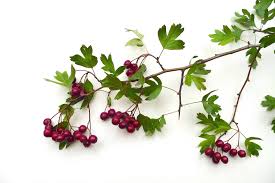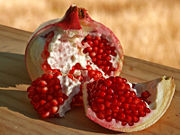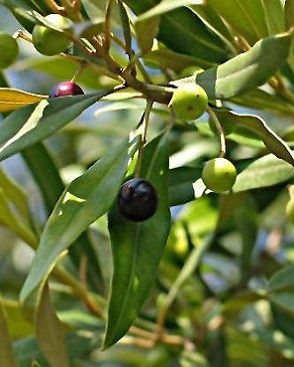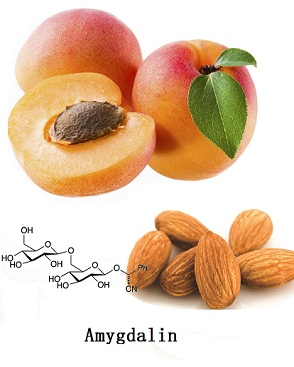- Plant-Based Protein
- Natural Plant Flavours
- Food and Dietary Supplement Ingredients
- Fruit Juice Powder
- Animal Nutrition Ingredients
- Water Soluble Ingredients
- Cosmetic Ingredients
- Unveiling the Therapeutic Potential of Rabdosia Rubescens: A Comprehensive Review
- What are the medicinal properties of Rabdosia Rubescens?
- Nutritional value of Orange Juice Powder compared to fresh orange juice.
- Processing Conditions and Nutritional Value of Orange Juice Powder
- Exploring the Versatility of Herbal Extracts in Food Flavors

What are the health benefits of hawthorn leaf?
Welcome to our blog! Today, we are diving into the world of hawthorn leaf and uncovering its incredible health benefits. Whether you're a fan of herbal remedies or simply curious about natural alternatives, hawthorn leaf is definitely worth exploring.


Pomegranate Extract(Ellagic acid) and benefits,side effect, uses,dosage
Pomegranate (Punica granatum L.) can help prevent or treat various disease risk factors including high blood pressure, high cholesterol, oxidative stress, hyperglycemia, and inflammatory activities. It is demonstrated that certain components of pomegranate such as polyphenols have potential antioxidant, anti-inflammatory, and anticarcinogenic effects. Pomegranate can reduce macrophage oxidative stress, free radicals, and lipid peroxidation. Moreover, pomegranate extract prevents cell growth and induces apoptosis, which can lead to its anticarcinogenic effects. In addition, promoter inhibition of some inflammatory markers and their production are blocked via ellagitannins or ellagic acid.
|
|
 |
What you may get from us: If you're developing a product that contains plant active ingredients from Pomegranate Extract.I think you can find the information or products you need here.
Simple production process in our factory:After the plant is collected, raw material will be processed by solvent extraction, separation and purification, filtration, concentration, drying and other steps to form the final products. We may also design a prouction process based on your special requirements.
Through the physical and chemical processes, those compunds you don't want was removed, and the compunds preferred was accumulated. Which make the products achieve the best effects.
How to use Rosemary extract powder:What you need is just use our products to formulate your products. It can be mixed with your other ingredients directly to make premix products. It can also be directly used for filling capsules or making tablets. And if your dosage form is tincture or solution, It can also be suitable. Easy to say, our products are ready for Formula products.
|
Pomegranate Extract (40%Ellagic Acid) |
||
|
CAS No. |
476-66-4 |
|
|
Appearance |
Powder |
|
|
Color |
Grey or Dark Brown |
|
|
Partical size |
Normally pass through 80mesh |
|
|
Pack size |
25 kgper paper drum |
|
|
Purity of active compunds |
40%Ellagic Acid 40%Polyphenols |
By HPLC By UV |
|
For pricing or more information, please call 86 29 88444632 or send an email to Sales@nutraherbsource.com
|
||

General Information
Common Name: Pomegranate hull extract, Pomegranate peel Extract, Pomegranate seed Extract.
Latin Names:Punica granatum, Punicaceae
Plant Description:
Pomegranate: The pomegranate (Punica granatum, Punicaceae)is an attractive tree that grows up to 5 m in height. It has glossy, leathery leaves and bears showy red f lowers at the branch tips. Thedistinctive shape of the spherical fruit (2.5 to 5 inches in diameter)is imparted by the prominent f leshy red calyx which persists after flowering. The fruit has a tough leathery skin that is variously referred to as the rind, husk, or pericarp. The interior of the fruit is compartmentalized by membranous walls (carpels) and white spongy pith. The resulting locules are packed with 600 to 800 sacs or arils, each of which contains one seed and juicy pulp. Conventional pomegranate juices normally constitute 45 to 65% of the whole fruit.
Compounds of Pomegranate.

Ellagic acid is a naturally occurring polyphenolic constituent found in Pomegranate fruit. The health benefits associated with pomegranate have led to the development of pomegranate extracts as botanical dietary supplements. Pomegranates contain hydrolyzable tannins in the form of punicalagins and punicalin as well as tannin-based complex oligomers that account for much of the antioxidant activity in juice. The content of ellagic acid has been used to standardize most pomegranate extract dietary supplements marketed.
MW: 302.19
Formula: C14H6C8
Health Benefits of Pomegranate extract
Pomegranate is considered to be an anthelmintic or substance that destroys and expels intestinal worms. Of all types of intestinal worm infestations, Pomegranate is said to be most useful in cases of tapeworm, an incredibly long parasite, which attaches itself to the intestinal walls of its host by means of spined or sucking structures.
Ellagic acid prevents the binding of carcinogens to DNA and strengthens connective tissue, which may keep cancer cells from spreading." Ellagic Acid has the ability to inhibit mutations within a cell's DNA. Furthermore, it is considered to be a cancer inhibitor which has the ability to cause apoptosis or normal cell death in cancer cells.
Pomegranate Tannins have been used to relieve looseness of bowels, control chronic diarrhea and alleviate amœbic dysentery when used in proper dosages.
With regard to heart health, the polyphenols in Pomegranate are currently being studied for their abilities as antixodiants that may be responsible for free radical scavenging. In several human clinical trials, Pomegranate has been found effective in reducing several heart risk factors, including LDL (low-density lipoproteins or "bad cholesterol") oxidation, macrophage oxidative status and foam cell formation, all of which are steps in arteriosclerosis and heart disease. Israeli scientists claim that Pomegranate may prevent the thickening of arteries.
Researchers at the University of Wisconsin School of Medicine claim that Pomegranate shows major promise in the fight against malignant prostate disease. Pomegranate ellagic acid has been shown to suppress inflammatory cell signaling, inhibit prostate tumor growth and lower serum PSA levels. In vitro studies using malignant human cells, the higher the dose of Pomegranate extract the cells received, the more cells died. In laboratory tests using mice, the results were dramatic: Those receiving the higher concentration of Pomegranate extract showed significant slowing of their cancer progression and a decrease in the levels of prostate-specific antigen (PSA), a marker used to indicate the presence of prostate cancer in humans. "Our study, while early, adds to growing evidence that Pomegranates contain very powerful agents against cancer, particularly prostate cancer," says lead author, Dr. Hasan Mukhtar, professor of dermatology in the UW Medical School. Further (2009) research into prevention of prostate cancer was demonstrated at the University of Mississippi, when studies indicated that the antioxidant ellagitannin compounds (punicalagins and punicalins) were thought to be behind the proposed health benefits, which included inhibition of cytochrome P450 1B1, an enzyme known to be highly expressed in various human malignancies, but not in normal tissues, and an established target in the prevention of prostate cancer.
Other potent antioxidants,particularly ellagitannin compounds like punicalagins and punicalins, accounts for about half of the fruit's antioxidant ability, that are reportedly behind many health benefits.
Pursuant to Pomegranate's potent antioxidant properties, it is thought to beautify and improve skin health from inside-out by neutralizing skin-damaging renegade oxygen molecules created by pollution and ultraviolet rays. Both topical or dietary use of Pomegranate, which is rich in ellagic acid and ellagitannins, are promising strategies in curtailing skin wrinkling. 2010 research from Korea's Hallym University showed that ellagic acid reduced the UV-B-induced toxicity of these cells, helping to prevent collagen destruction in human skin cells, thus maintaining skin structure and slowing wrinkle formation. The interventions also diminished the cutaneous inflammation associated with chronic UV exposure that leads to photo-ageing.
Pomegranate is believed to possess antiviral and antiseptic properties, which have been helpful when applied to cuts. When used externally as a topical antiseptic, it is said to be beneficial in cases of skin problems, vaginal discharge and as a vaginal douche for leukorrhœa. Pomegranate's antibacterial activities also render it beneficial for oral health, helping to relieve mouth sores, throat infections (as an antiseptic gargle), mouth irritation; and several studies have indicated that treatment with Pomegranate extract significantly improved clinical signs of chronic periodontitis. Furthermore, its astringent action results in strengthened gums.
Cardiovascular Benefits
The pomegranate is a rich source of natural antioxidant compounds that help your body rid itself of free radicals, which form during digestion or after you're exposed to toxins. Over time, they can damage your cellular membranes and DNA, potentially raising your risk of chronic disorders that include atherosclerosis and heart disease. Several clinical studies suggest that pomegranate antioxidants can help improve cardiovascular function, according to experts at the Memorial Sloan-Kettering Cancer Center. For example, a study published in the September 2005 issue of the "American Journal of Cardiology" found that subjects with coronary artery disease who consumed pomegranate juice daily for three months had less ischemia, a type of heart damage, than similar subjects who took a placebo.
Anti-Cancer Properties
Natural compounds in pomegranate extracts might also have anti-cancer properties, according to the University of Maryland Medical Center, slowing the growth of cultured breast, prostate and lung cancer cells. In a phase 2 clinical trial of pomegranate juice as an anti-cancer supplement, published in July 2006 in "Clinical Cancer Research," researchers tested the effect of consuming pomegranate juice in male subjects who had been treated for prostate cancer but had increasing levels of prostate-specific antigen, a marker of the cancer's growth. They found that the rate of prostate-specific antigen increase was markedly reduced and other factors related to cancer cell growth were also lessened during the period when the subjects drank the juice.
Anti-inflammatory Actions
Natural pomegranate compounds, especially those called flavonols, might reduce inflammation, which is at least partially responsible for several disorders, including osteoarthritis and other inflammatory conditions. A laboratory study published in the February 2006 issue of "Journal of Agricultural and Food Chemistry" found that compounds in pomegranate juice can block several steps in the cellular responses that lead to inflammation. Another study in the September 2005 issue of "Journal of Nutrition" found that pomegranate extract might help prevent or improve osteoarthritis by inhibiting enzymes involved in inflammation and eventual degradation of cartilage. These findings from laboratory studies are promising but still need confirmation in clinical trials with human subjects.
Precautions:
Pomegranate extract is considered generally safe, with no known side effects.
- Prev:Fenugreek Seed Extract,Furostanol saponins and Health benefits, uses Improve testosterone
- Next:Emodin and benefits, uses,side effect, dosage Anticancer











